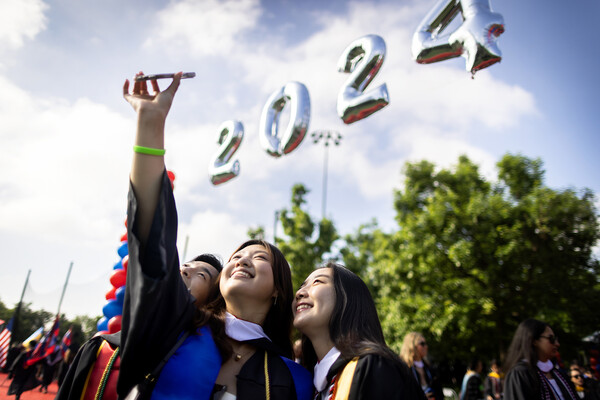When it comes to Africa, he means business
Photo by Candace diCarlo
In the United States, computers are a fixture in nearly every school and business. Millions of Americans access the Internet every day, often from the luxury of their own homes. But in Bamako, in the western African nation of Mali, computers are foreign devices. Neysan Rassekh (W'99) didn't want Bamako students to "miss the technological revolution."
Armed with little more than the belief that the students, if given the opportunity, would utilize the Internet, Rassekh went to Bamako in the winter of 1998 to test his theory. Having secured permission from the U.S. Agency for International Development (USAID) office in Bamako to use their computers, Rassekh watched as students ranging in age from 7 to 18 years old gleefully explored one site after another.
"They were fascinated," he said. "It was incredible to look in their eyes and see how inspired they were."
Although the use of USAID's computers was just a temporary arrangement, Rassekh hopes that his campaign to bring the Internet to Bamako will not end there. Ideally, he would like to see a company donate computers and an Internet server to Mali schools. "I have spoken to the president of Mali, and he has given his approval. The only thing still pending is [finding] any company willing to donate some computers," Rassekh said.
But Rassekh's interest in Africa does not end there. Although an American citizen, Rassekh has lived in Africa since he was four. "My passion stems from having lived in the poorest African country, Mali. I have seen the two extremes [between poverty and wealth] and that made me want to dedicate a part of my life to help those who are poor to rise above their poverty and have better opportunities in the world," he said.
This passion is what led him to become involved in the Corporate Council on Africa. Founded six years ago and made up of about 200 companies, many of which are on the Fortune 500, the Council's aim is to promote U.S.-Africa relations. Working at the Council helped him to become more involved in relations between the United States and Mali, as well as Senegal. Rassekh flew to these two countries, met with senior government officials and officials of the U.S. Foreign Service and Commerce Department and showed them how Council members could help promote business and create links between the countries and the United States.
"A lot of business deals were done and I think that in the near future we are going to see a substantial increase in the amount of business done between this country and its private sector and Africa," Rassekh said.
Although he was unable to attend meetings in September between the Council and the other countries because he felt it was important to attend to his studies, he did have the opportunity to coordinate the visit of Equatorial Guinea's President Teodoro Obiang to Washington, D.C., in June. According to Rassekh, the event was a "great success," as diplomats from countries throughout the world and business leaders from a wide array of companies, including those in the fields of banking, oil and manufacturing, attended the kickoff reception and dinner at the Willard Hotel.
"It was so inspiring to see the fruits of my labor manifest themselves as U.S. and foreign diplomats and officials aligned themselves with the Equatorial Guinea businesses," Rassekh said.







